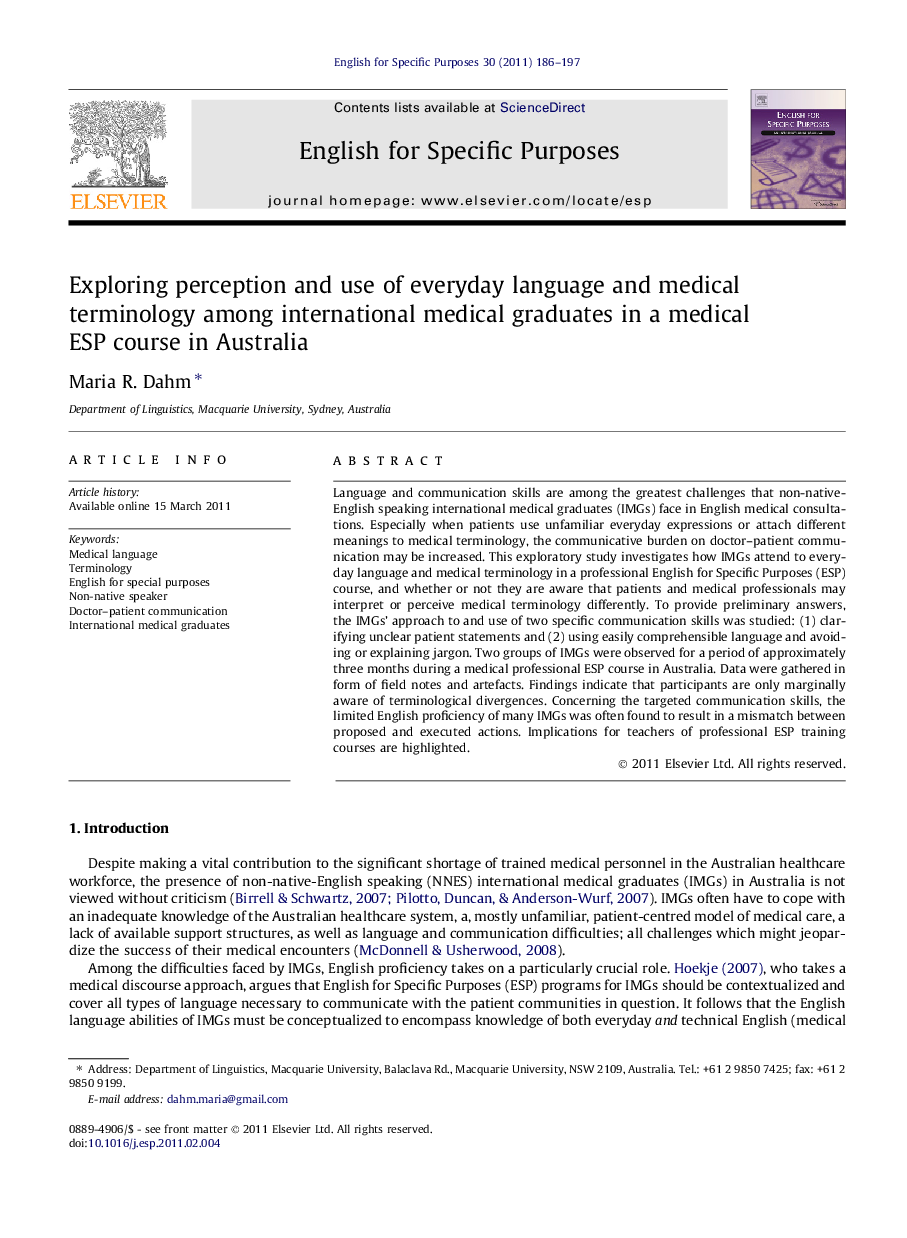| Article ID | Journal | Published Year | Pages | File Type |
|---|---|---|---|---|
| 355501 | English for Specific Purposes | 2011 | 12 Pages |
Language and communication skills are among the greatest challenges that non-native-English speaking international medical graduates (IMGs) face in English medical consultations. Especially when patients use unfamiliar everyday expressions or attach different meanings to medical terminology, the communicative burden on doctor–patient communication may be increased. This exploratory study investigates how IMGs attend to everyday language and medical terminology in a professional English for Specific Purposes (ESP) course, and whether or not they are aware that patients and medical professionals may interpret or perceive medical terminology differently. To provide preliminary answers, the IMGs’ approach to and use of two specific communication skills was studied: (1) clarifying unclear patient statements and (2) using easily comprehensible language and avoiding or explaining jargon. Two groups of IMGs were observed for a period of approximately three months during a medical professional ESP course in Australia. Data were gathered in form of field notes and artefacts. Findings indicate that participants are only marginally aware of terminological divergences. Concerning the targeted communication skills, the limited English proficiency of many IMGs was often found to result in a mismatch between proposed and executed actions. Implications for teachers of professional ESP training courses are highlighted.
Research highlights► Awareness of problematic medical terminology issues is low among international medical graduates (IMGs). ► IMGs do not always adopt recommended communication strategies. ► Medical ESP courses should cover both ‘lay’ and technical medical terminology. ► Reinforcing certain strategies could further acceptance and consistency in use.
